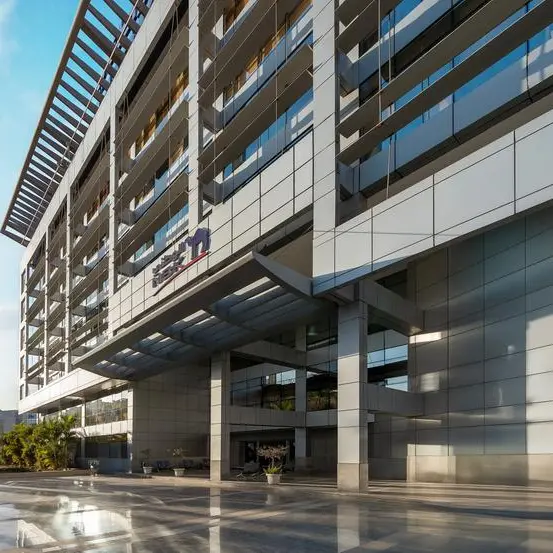The core purpose of every single automotive brand is to create greater convenience and accessibility for its customers to move from one place to another. Before delving into how the automotive industry can introduce greater freedom, independence, and empowerment in the lives of people of disability. I want to remind everyone about how sometimes we can undervalue the importance of our ability to drive.
Anyone living in the UAE, or any other GCC country, will understand how beneficial it is to be a motorist. Looking specifically at the UAE, where many neighbourhoods are placed relatively far from the main city attractions, driving a car becomes a necessity. Although public transport is readily available it’s difficult for individuals to have time for more than two or three activities per day because let’s face it, commuting takes time. Driving allows us to get more from our lives just like our smartphones and home assistant devices like Alexa. In many ways cars are more important because mobility ultimately gives us more freedom, choice, and flexibility.
I would like you to think how different your life would be if you did not have a car or if you were not able to drive one. What knock-over effect would pop up first: isolation from society, giving up some of your hobbies, or decreased independence? Now that you have identified what comes first, what if I told you that the right to owning a car is reserved for some people only and getting access to it is not as easy for everyone?
For people of disability, the ability to drive is more complex as certain obstacles need to be overcome first. The process starts with the purchase of a standard car which will then be customized to fit the individual’s specific needs. There are four ways through which people of determination, which find it difficult or physically impossible to access cars, are and can be supported by the automotive industry to drive independently.
Technology That Supports
Currently, the way the automotive industry contributes to higher accessibility is through the high-quality built-in technology that can create a more convenient, safe, and peaceful driving experience for customers. This is done through driving assistants that can predict collisions, display visual alerts on screens and automatically apply the vehicle’s brakes if the driver doesn’t react quickly enough. Automatic lane-keeping assistance also exists to make sure the driver does not accidentally drift into another lane. This adds an extra safety layer which gives drivers that confidence when driving on congested roads if they have limited upper body mobility. The improved on-road safety and hassle-free driving are two aspects that help create more inclusive vehicles. We can easily see all these features reflected in KIA’s autonomous driving and assistive technologies system called DRIVE WiSE. It’s important for manufacturers to continue innovating and refining their driver aid technologies to make driving safer and more intuitive for everyone.
Supporting Government Schemes
The automotive industry can partner with government entities to make these services accessible. For example, independent companies like Motability are in charge for the finance, administration, and maintenance of the Motability Scheme in the UK. The Motability Scheme supports anyone who receives a qualifying mobility allowance to use it to lease a car, scooter, powered wheelchair, or wheelchair accessible vehicle (WAV) based on their needs. This means that any person of determination can drive as Motability recommends and offers rental of personalized vehicles based on specific needs. This is achieved through the introduction of car adaptations such as mechanical hand controls, electronic accelerators, steering aids, and pedal guards, which can help anyone who has limited mobility or control in their legs easily drive a car. An important part of this is identifying vehicles that can support these alterations and at KIA, vehicles such as the Sorento, Telluride, Carnival, and Sedona are fully adaptable to fit adaptation solutions offered by third-party services.
Providing Advice and Guidance Services
Many of us need guidance and advice when we purchase a car because let’s face it, most people are not car enthusiasts or experts. Similarly, people of disability also need to be supported in choosing the right adaptations. In the UAE, an independent company, Manafeth Mobility and Medical, offers people of disability advice and guidance to help them identify what solution best fits their needs and can ensure the highest on-road safety. This is in addition to providing any adaptations to vehicles, such as installing hand controls, mobility equipment on rentals, wheelchair lifts for vehicles and more. Automotive brands can highly benefit from collaborating with companies such as Manafeth, that offer this type of support. This will not only help diversify their offering but also ensure they are more inclusive as they have a greater capability of making driving more accessible and inclusive for people of disability.
Make Driving Affordable
Although the physical car alterations, solutions, and advice can be readily available, not everyone has access to an adequate amount of funds to support this endeavour. Creating greater accessibility in terms of financial support can help make the automotive industry more accessible. For example, Motability Ireland offers funds and grants to people of disability when they wish to purchase specifically adapted vehicles and extensively adapted vehicles once they provide their Primary Medical Certificate. This certificate can only be issued through the Health Service Office (HSE) after the completion of an assessment with a Senior Area Medical Officer in the Health Board. The blueprints of schemes which support people of disability in getting access to the option they need are readily available worldwide. Globally, the industry can look to other markets to see what works and what prospective collaborations could help introduce the sufficient support needed to increase accessibility and inclusivity.
The automotive industry can continue to play a great role in providing people of disability with greater freedom, independence, and convenience by introducing purposeful collaborations. As we have seen, the most impactful change appears when we pool in our individual expertise, talent, and services. So how does your next collaboration look like?
-Ends-
© Press Release 2021
Disclaimer: The contents of this press release was provided from an external third party provider. This website is not responsible for, and does not control, such external content. This content is provided on an “as is” and “as available” basis and has not been edited in any way. Neither this website nor our affiliates guarantee the accuracy of or endorse the views or opinions expressed in this press release.
The press release is provided for informational purposes only. The content does not provide tax, legal or investment advice or opinion regarding the suitability, value or profitability of any particular security, portfolio or investment strategy. Neither this website nor our affiliates shall be liable for any errors or inaccuracies in the content, or for any actions taken by you in reliance thereon. You expressly agree that your use of the information within this article is at your sole risk.
To the fullest extent permitted by applicable law, this website, its parent company, its subsidiaries, its affiliates and the respective shareholders, directors, officers, employees, agents, advertisers, content providers and licensors will not be liable (jointly or severally) to you for any direct, indirect, consequential, special, incidental, punitive or exemplary damages, including without limitation, lost profits, lost savings and lost revenues, whether in negligence, tort, contract or any other theory of liability, even if the parties have been advised of the possibility or could have foreseen any such damages.



















